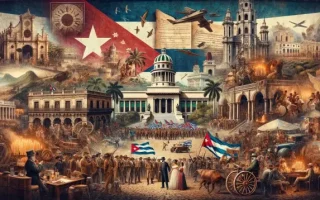iwillnotbebroken.org – Nestled within the heart of Rome, Italy, lies the world’s smallest independent state, Vatican City. This unique city-state is not only renowned for its diminutive size but also for its profound historical, cultural, and religious significance. With an area of just 109 acres (0.44 square kilometers), Vatican City is the spiritual and administrative headquarters of the Roman Catholic Church, governed by the Pope, who serves as both its head of state and the leader of the worldwide Catholic faith.
A Brief History
The establishment of Vatican City as a sovereign entity is relatively recent, dating back to the Lateran Treaty of 1929 between the Holy See and Italy. This treaty recognized the full sovereignty of the Holy See in the international field and established the current territory of Vatican City. Despite its modern political boundaries, the history of the Vatican is deeply intertwined with the history of Christianity and the Roman Empire, with roots stretching back over two millennia.
Government and Administration
Vatican City operates under a form of absolute monarchy, with the Pope as the supreme legislator, executive, and judicial power. The governance is supported by the Roman Curia, which acts as the central body through which the Pope exercises his authority. The unique nature of Vatican City’s government reflects its primary role as a religious rather than a traditional political entity.
Cultural and Architectural Marvels
Vatican City is home to some of the world’s most renowned cultural and architectural treasures. The St. Peter’s Basilica, with its awe-inspiring dome designed by Michelangelo, stands as a testament to human artistic achievement. The Vatican Museums, housing an extensive collection of art and artifacts, including the Sistine Chapel with its famous ceiling painted by Michelangelo, attract millions of visitors each year.
Economic and Social Life
The economy of Vatican City is primarily supported by the sale of postage stamps and souvenirs, the fees for admission to museums, and the sale of publications. The city-state does not levy taxes on its residents, and its currency, the Vatican euro, is on par with the euro used by many European Union countries. Despite its small size, Vatican City has a robust social structure, providing healthcare, education, and security services to its residents.
International Relations
Vatican City maintains diplomatic relations with over 180 countries, playing a significant role in international affairs, particularly in matters concerning peace, human rights, and religious freedom. Its unique status and the moral authority of the Pope give Vatican City a voice on the global stage that far exceeds its physical size.
Conclusion
Vatican City stands as a microcosm of human achievement and spirituality. Its existence as the world’s smallest country is a testament to the enduring power of faith and the importance of cultural and historical preservation. Despite its limited geographical extent, Vatican City’s influence on the world stage is profound, making it a unique and significant entity in the global community.




